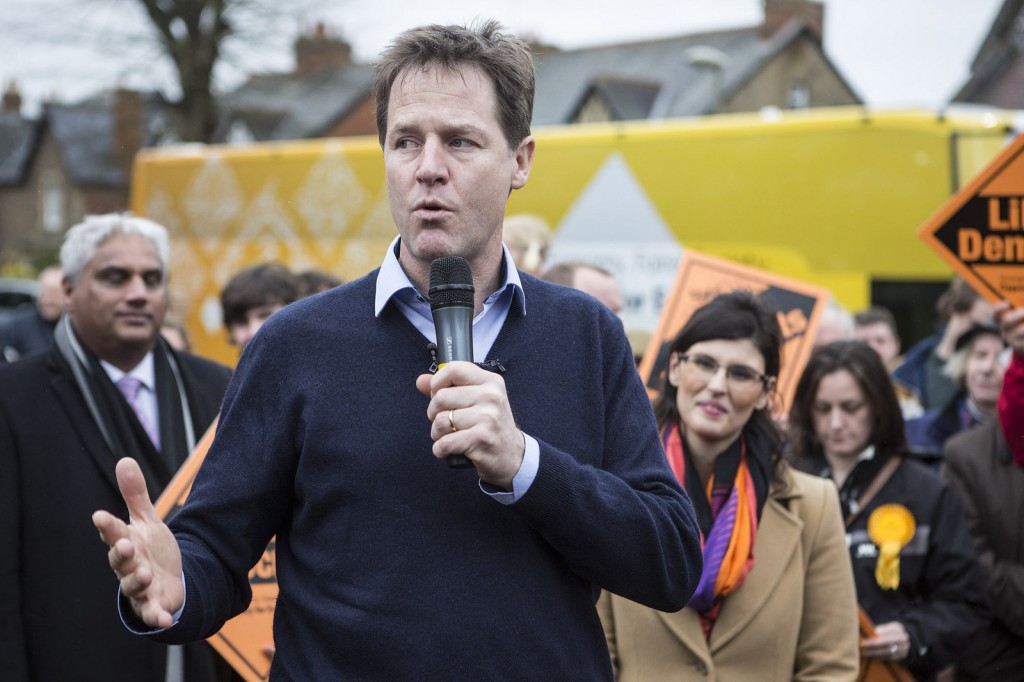Nick Clegg and Bohuslav Sobotka, Prime Minister of the Czech Republic, have stated that the need for a new approach to international drug policy is as vital as a climate change accord, in a compelling article in last week’s Observer.
Highlighting the futility of the current UN position, they point out that in 1998 Kofi Annan set a UN target for a drug-free world within ten years, a declaration so unachievable that since retiring from his position as UN Secretary-General, he has himself become a vocal opponent of the current system of international prohibition:
Drugs may have destroyed many people, but wrong governmental policies have destroyed many more. Let us not repeat this mistake.
Describing the shortsightedness of the 1998 UN declaration, Clegg and Sobokta note:
There is something profoundly misguided about the idea that human beings, who for thousands of years have taken an array of chemicals and plants for recreational and ritual purposes, would, in the space of 10 years, suddenly sober up at the request of the UN.
The many unintended consequences of the policies of prohibition adopted by the UN are outlined, from spiralling incarceration figures, to unchecked growth in organised crime networks and global drug use, the impact of the illicit trade on the environment. A direct quote from the UN Office of Drugs and Crime itself illustrates how out of control the current situation has become.
The illicit drug business is worth billions of dollars a year, part of which is used to corrupt government officials and to poison economies. Drug cartels are spreading violence in Central America, Mexico and the Caribbean. West Africa is under attack from narco-trafficking. Collusion between insurgents and criminal groups threatens the stability of west Asia, the Andes and parts of Africa, fuelling the trade in smuggled weapons, the plunder of natural resources and piracy.
Clegg and Sobokta make the case that for far too long Europe has sat on its hands in the international drug policy debate, happy to let the countries that have to suffer the front line of the War on Drugs take the lead in discussions, and shirking its responsibilities as a net drug consuming region of the world.
The timing of this call is crucial, as the UN will finally have a rare chance to discuss international drug policy at the upcoming General Assembly Special Session (UNGASS) in April. As Clegg and Sobokta state, if Europe steps up to the plate and campaigns for reform, this could be the best chance in years to shift the focus of international drug policies to those based on evidence and harm reduction, rather than the status quo of prohibition and criminalisation.
Drawing on the experience of the recent climate change talks in Paris, the hope from Clegg and Sobokta is that the power of diplomacy can finally be brought to bear on the much maligned and overly politicised subject of drug policy. The timely call has received a warm welcome across the board:
Impressive #UNGASS2016 call by #Czech PM Sobotka & @nick_clegg New deal on drugs as vital as climate change accord: http://gu.com/p/4g9yn/stw
Drugs: “governments need to base their policies on the best available evidence, rather than political posturing” http://gu.com/p/4g9yn?CMP=Share_iOSApp_Other …
‘Drugs may have destroyed many people, but wrong governmental policies have destroyed many more’ http://www.theguardian.com/commentisfree/2016/jan/31/new-deal-on-drugs-vital-as-climate-change-deal … via @guardian
This is the latest in a series of statements and articles from Nick Clegg attempting to raise the profile of debate into drug-related issues, since his appointment to the Global Commission on drug policy last year.
Recently he has also spoken out in favour of widening access to medical cannabis after meeting with a delegation from the United Patients Alliance at Westminster to discuss the difficulties many patients face.
The full Observer article can be found here.
Words by Henry Fisher

